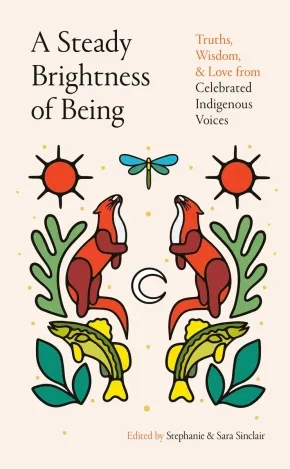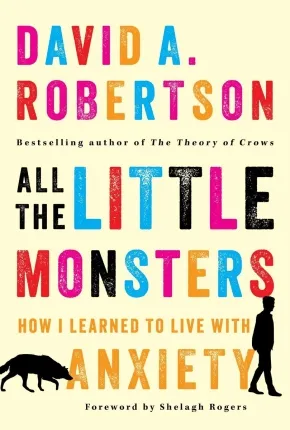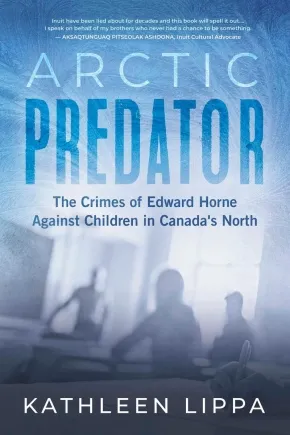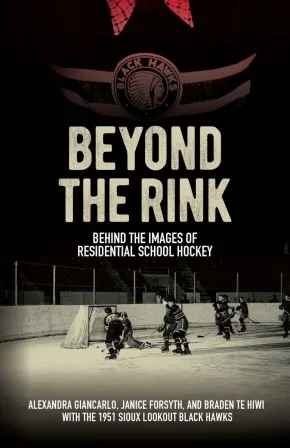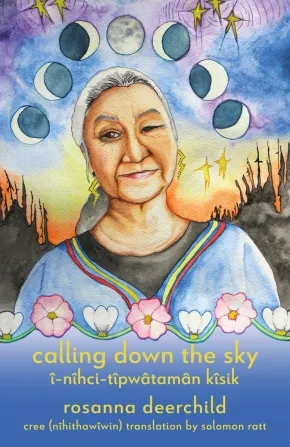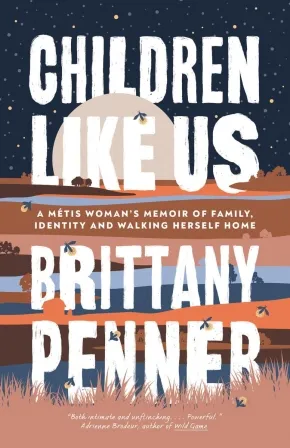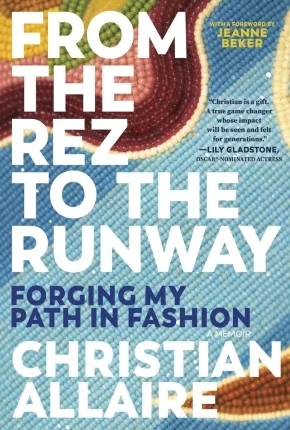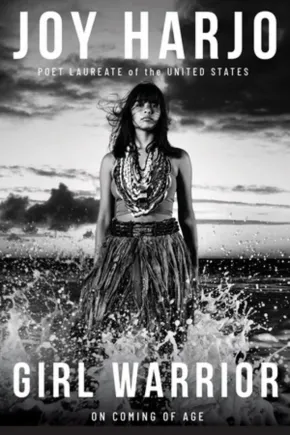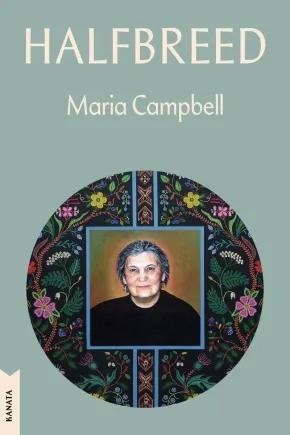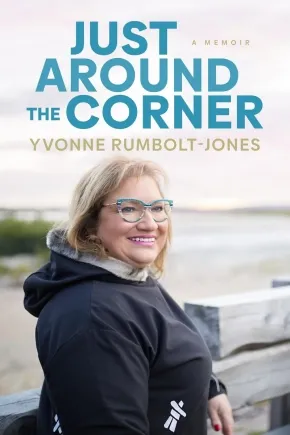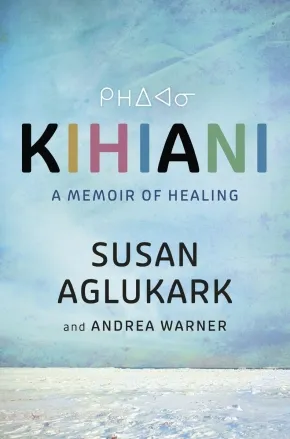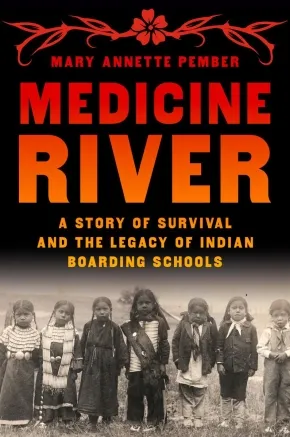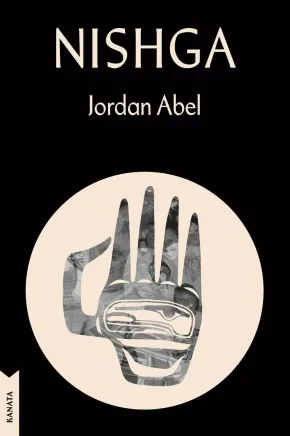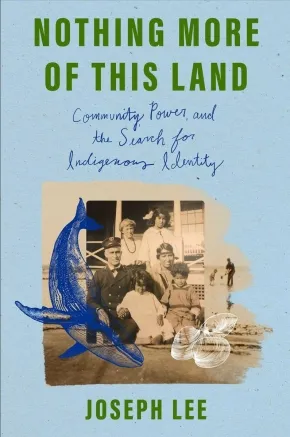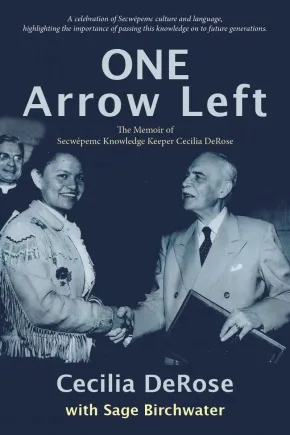Biographies
Synopsis:
Bringing together voices from across Turtle Island, a groundbreaking collection of letters from Indigenous writers, activists, and thinkers—to their ancestors, to future generations, and to themselves.
Drawing on the wisdom and personal experience of its esteemed contributors, this first-of-its-kind anthology tackles complex questions of our times to provide a rich tapestry of Indigenous life, past, present, and future. The letters explore the histories that have brought us to this moment, the challenges and crises faced by present-day communities, and the visions that will lead us to a new architecture for thinking about Indigeneity. Taking its structure from the medicine bundle—tobacco, sage, cedar, and sweetgrass—it will stir and empower readers, as well as enrich an essential and ongoing conversation about what reconciliation looks like and what it means to be Indigenous today.
Contributors: Billy-Ray Belcourt, Cindy Blackstock, Cody Caetano, Warren Cariou, Norma Dunning, Kyle Edwards, Jennifer Grenz, Jon Hickey, Jessica Johns, Wab Kinew, Terese Marie Mailhot, Kent Monkman, Simon Moya-Smith, Pamela Palmater, Tamara Podemski, Waubgeshig Rice, David A. Robertson, Niigaan Sinclair, Miss Chief Eagle Testickle, Zoe Todd, David Treuer, Richard Van Camp, katherena vermette, Jesse Wente, Joshua Whitehead.
Additional Information
192 pages | 5.50" x 8.25" | Hardcover
Synopsis:
With humour, warmth and heartbreaking honesty, award-winning author David A. Roberston explores the struggles and small victories of living with chronic anxiety and depression, and shares his hard-earned wisdom in the hope of making other people’s mental health journeys a little less lonely
From the outside, David A. Robertson looks as if he has it all together—a loving family, a successful career as an author, and a platform to promote Indigenous perspectives, cultures and concerns. But what we see on the outside rarely reveals what is happening inside. Robertson lives with “little monsters”: chronic, debilitating health anxiety and panic attacks accompanied, at times, by depression. During the worst periods, he finds getting out of bed to walk down the hall an insurmountable task. During the better times, he wrestles with the compulsion to scan his body for that sure sign of a dire health crisis.
In All the Little Monsters, Robertson reveals what it’s like to live inside his mind and his body and describes the toll his mental health challenges have taken on him and his family, and how he has learned to put one foot in front of the other as well as to get back up when he stumbles. He also writes about the tools that have helped him carry on, including community, therapy, medication and the simple question he asks himself on repeat: what if everything will be okay?
In candidly sharing his personal story and showing that he can be well even if he can’t be “cured,” Robertson hopes to help others on their own mental health journeys.
Additional Information
272 pages | 6.00" x 9.00" | Paperback
Synopsis:
The shocking crimes of a trusted teacher wrought lasting damage on Inuit communities in Canada's Arctic.
In the 1970s, a young schoolteacher from British Columbia was becoming the darling of the Northwest Territories education department with his dynamic teaching style. He was learning to speak the local language, Inuktitut, something few outsiders did. He also claimed to be Indigenous - a claim that would later prove to be false. In truth, Edward Horne was a pedophile who sexually abused his male students.
From 1971 to 1985 his predations on Inuit boys would disrupt life in the communities where he worked - towns of close-knit families that would suffer the intergenerational trauma created by his abuse.
Journalist Kathleen Lippa, after years of research, examines the devastating impact the crimes had on individuals, families, and entire communities. Her compelling work lifts the veil of silence surrounding the Horne story once and for all.
Additional Information
280 pages | 6.00" x 9.00" | Paperback
Synopsis:
Teammates, champions, Survivors
In 1951, after winning the Thunder Bay district championship, the Sioux Lookout Black Hawks hockey team from Pelican Lake Indian Residential School embarked on a whirlwind promotional tour through Ottawa and Toronto. They were accompanied by a professional photographer from the National Film Board who documented the experience. The tour was intended to demonstrate the success of the residential school system and introduce the Black Hawks to "civilizing" activities and the "benefits" of assimilating into Canadian society. For some of the boys, it was the beginning of a lifelong love of hockey; for others, it was an escape from the brutal living conditions and abuse at the residential school.
In Beyond the Rink, Alexandra Giancarlo, Janice Forsyth, and Braden Te Hiwi collaborate with three surviving team members-Kelly Bull, Chris Cromarty, and David Wesley-to share the complex legacy behind the 1951 tour photos. This book reveals the complicated role of sports in residential school histories, commemorating the team's stellar hockey record and athletic prowess while exposing important truths about "Canada's Game" and how it shaped ideas about the nation. By considering their past, these Survivors imagine a better way forward not just for themselves, their families, and their communities, but for Canada as a whole.
Reviews
"These three survivors-Kelly, David, and Chris-inspire us not only for what they have done for their communities in the aftermath of the residential school system but also for how crucial hockey and sports are in bringing Indigenous communities together, like we see in the Little NHL Tournament. Our history and the lessons we've learned are vital, and Beyond the Rink does an excellent job of highlighting this." — Ted Nolan, former NHL Player & Coach, Olympic Coach, and author of Life in Two Worlds: A Coach's Journey from the Reserve to the NHL and Back
"On its face, Beyond the Rink is a compelling story of a residential school hockey team from northern Ontario touring Ottawa and Toronto in the 1950s. But it is much more than that: with a National Film Board photographer accompanying them every step of the way, the players are props in a public relations exercise meant to obscure the true conditions in residential schools.
This is an unflinching and nuanced look behind the PR veil, a story of loss, triumph, perseverance, tragedy, and memory. It is also a detailed account of the machinery of residential schools and the trauma they inflicted. And it is a revealing look at the power of photographs, which can be used to both illuminate and mislead.
At its heart, Beyond the Rink is the story of twelve Indigenous hockey players, who, like their white counterparts, loved the game for the thrill of competition, but also as an escape from the relentless control and exploitation they faced on a daily basis, even if they were being exploited while doing it. This is the story of twelve boys, told through the lens of three of them, trapped in a world they barely understood, a world that was not the least bit interested in understanding them, and in many ways still isn't." — Gord Miller
"The authors have spent decades working with the Survivors whose stories they share and centre in this book. Beyond the Rink, Behind the Image does not simply tell the story of a hockey team; it demonstrates how sport within the context of residential schools was a tool of colonization." — Karen Froman
"It is difficult to overstate the significance of this book. The scholarship is sound as well as original in context and content, and Survivor testimony is respected and communicated in a theoretically sophisticated way." — Travis Hay
Additional Information
184 pages | 6.00" x 8.50" | 36 b&w illustrations, bibliography | Paperback
Synopsis:
A tenth anniversary bilingual edition in English and Cree of Rosanna Deerchild’s stunning collection about the intergenerational impacts of the Canadian residential school system.
you want me to
share my story
ok then
here it is
here in the unwritten
here in the broken lines
of my body that can never forget
In Calling Down the Sky, poet Rosanna Deerchild viscerally evokes her mother’s experience within the residential school system, the Canadian government’s system of violently removing Indigenous children from their homes, families, and languages in an explicit attempt to destroy Indigenous cultures and identities. With precise and intricate poetry, Deerchild weaves together the story of her mother’s childhood and Deerchild’s memories of her mother: her love of country music, her attempts to talk about what happened to her, how tightly she braided her daughter’s hair on the first day of school. In doing so, Deerchild illustrates the disruptive and devastating impacts of the residential school system on generations of families while also celebrating the life and culture of her mother and other survivors.
Published for the first time in a bilingual edition of Cree and English, in time for the tenth anniversary of the original publication, Calling Down the Sky is an intimate and gorgeously evoked reckoning with a horrifying part of North American history.
Reviews
“Rosanna Deerchild’s poems roll off the tongue as easy as old country songs. With her deft hand, Deerchild finely tunes every word and weaves them together as intimately as she braids her girls’ hair. Together, these poems create a story that sings with beautiful tension, amazing resilience, and love as big as the sky." - Katherena Vermette, Métis Writer
"The poetry collection, called calling down the sky, describes personal experiences with the residential school system in the 1950s and the generational effects it had." - CBC
"This poetry collection is fierce, raw and candid. It is also visceral, intricate and, above all, illuminating. By recounting her mother’s residential school experience in a powerfully poetic narrative, Deerchild expertly illustrates the heartbreaking trauma of that tragic saga and how it complicates relationships over generations. By beautifully and elaborately exploring those relationships and that devastating history, she finds and celebrates the resilient and hopeful spirit that many residential school survivors, like her mother, have managed to retain in the face of horror and torment. As a result, calling down the sky is an essential read in understanding the true modern history of this land and in honouring the people who survived it.” - Waubgeshig Rice
Educator Information
Bilingual: English and Cree
Additional Information
96 pages | 5.50" x 8.50"
Synopsis:
A Métis girl is adopted by a Mennonite family in this breathtaking memoir about family lost and found—for those who loved From the Ashes and Educated.
By the time Brittany Penner is seven years old, she has loved and lost twenty-one foster siblings who have come into her family and left—all of them Indigenous like her. "When will it be my turn?" she asks her mother time and time again. "When will I be taken away?" You won't be, she is told. You're adopted. You're here to stay. You're the lucky one.
On the day of her birth in 1989, near the end of the Sixties Scoop, Brittany was relinquished into the care of the government and adopted by a white Mennonite family in a small prairie town. Her name and where she came from are hidden from her; all she is told is that she is Métis. Her childhood is shaped by church, family, service and silence. Her family is continuously shifting as siblings arrive and depart, one by one. She knows that to stay, she has to force herself into the mold created for her. She must be obedient. Quiet. Good. No matter what.
Whenever she looks in the mirror, she searches her features, wondering if they've been passed down to her by her biological mother. She thinks, if she can find her mother, she'll find all the answers she's looking for. As Brittany moves into adulthood, she will uncover answers—but they will be more tangled than she could have imagined.
Children Like Us asks difficult questions about family, identity, belonging and cultural continuity. What happens when you find what you're looking for, but it can't offer you everything you need? How do you reckon with the truth of your own story when you've always been told you're lucky and should be grateful? What does it mean to belong when you feel torn between cultures? And how does a person learn to hold the pain and the grief, as well as the triumphs, the joys and the beauty, allowing none to eclipse the others?
Reviews
"Children Like Us is a luminous memoir about identity, loss and belonging. Adopted at birth by a white Mennonite family, Brittany Penner grows up straddling two worlds—one she knows and one that remains just out of reach. As she pieces together her origins, she reckons with the complexities of family, love and cultural displacement. Both intimate and unflinching, Children Like Us is a powerful exploration of what it means to know where you come from—and what it costs when that knowledge is withheld." —Adrienne Brodeur, nationally bestselling author of Wild Game
"An absolutely mesmerizing debut. It was a privilege to bear witness to Brittany Penner's story about intergenerational trauma, identity, and belonging. The kinds of complicated grief we so often experience in life are born out of the complexity of human relationships and our fierce ability to both hurt and heal one another. Penner explores this truth deftly, with wisdom, compassion and grace. I hope everyone reads this book." —Claire Bidwell Smith, author of The Rules of Inheritance
Additional Information
384 pages | 5.62" x 8.25" | Paperback
Synopsis:
Growing up on the Nipissing First Nation reserve in Northern Ontario, Christian Allaire wanted to work in the fashion industry, a future that seemed like a remote, and unlikely, dream
He was first introduced to style and design through his culture’s traditional Ojibwe powwow regalia—ribbon skirts, beaded belts, elaborate headdresses. But as a teenager, he became transfixed by the high-fashion designs and runway shows that he saw on Fashion Television and in the pages of Vogue.
His unwavering interest in fashion led him to complete a journalism degree so he could pursue his goal of becoming a full-time fashion writer. After landing his first big magazine job in New York City, Allaire found himself working at the epicentre of the international fashion industry. His dream had come true. Yet he soon realized the fashion world—and his place in it—wasn’t always quite as glamorous as he imagined it would be.
From grinding as an unpaid intern, to becoming a glitzy (but overworked) fashion editor, Allaire writes with feeling about the struggle to find his place—and community—in the highly exclusive world of fashion. And he recounts, with great candour, the difficulty of balancing his ambitions with the often-inaccurate perceptions—including his own—of his culture’s place in the realm of fashion.
Full of joy, honesty, adversity, and great clothes, From the Rez to the Runway is a gripping memoir about how to achieve your dreams—and elevate others—while always remaining true to yourself.
Reviews
“Christian is a gift. He embodies the precious intersection between arts and advocacy, and is a truly grounded and inspired human being. In having such a curated, unique and sharp eye for both classic and cutting edge design, coupled with an unshakable commitment to elevating Indigenous designers, he has carved a necessary space which elevates Indian Country and the world of fashion as a whole. A true game changer whose impact will be seen and felt for generations.” — Lily Gladstone, Oscar-nominated actor
Funny, honest and utterly charming, From the Rez to the Runway lends the cliche fashion editor origin story a refreshing new perspective. With a true sense of passion and wide-eyed wonder, Christian Allaire pursues his personal quest for creativity, purpose and self-discovery and finds that staying true to one’s self brings the greatest rewards. Brimming with moving family memories from the reservation and hilarious fashion misadventures alike, the book is a must-read for all the so-called outsiders and misfits who’ve ever dared to follow their dreams. — Chioma Nnadi, Head of Editorial Content, British Vogue
From beadwork to Burberry, Christian Allaire is a force in fashion. He paints a portrait of a complicated industry rarely seen behind the scenes — let alone traversed by Indigenous writers. In this compelling and inspiring memoir, Allaire details how he carries community with him through every glass ceiling he shatters. His work, and this memoir, are a triumph. After all, ‘Don’t mess with a rez kid.’ — Devery Jacobs, Filmmaker and Actor, Reservation Dogs
There is a new generation of Fashion Transformers and Christian Allaire is leading the movement. Allaire has been chosen by spirit to shine a light on Indigenous Fashion and Art, and he has done so at the highest levels, from New York to Paris, and all around the world. He is a door opener for the truth, power, and beauty of true fashion and its creators. — Kelly Cutrone, founder of People’s Revolution and New York Times bestselling author
Additional Information
272 pages | 6.00" x 9.00" | Paperback
Synopsis:
“To know ourselves is the most profound and difficult endeavor. Though we are all made of the same questions, we have individual routes to the answers, or to reframing the questions. Why is there evil in the world? Why do people suffer, and some more than others? Why are we here? What are we doing here? What happens after death? Does anything mean anything at all? Who am I and what does it matter?” writes Joy Harjo, renowned poet and activist, in this profound work about the struggles, challenges, and joys of coming of age.
In her best-selling memoir Poet Warrior, Harjo led readers through her lifelong process of artistic evolution. In Girl Warrior, she speaks directly to Native girls and women, sharing stories about her own coming of age to bring renewed attention to the pivotal moments of becoming including forgiveness, failure, falling, rising up, and honoring our vast family of beings.
Informed by her own experiences and those of her ancestors, Harjo offers inspiration and insight for navigating the many challenges of maturation. She grapples with parents, friendships, love, and loss. She guides young readers toward painting, poetry, and music as powerful tools for developing their own ethical sensibility. As Harjo demonstrates, the act of making is an essential part of who we are, a means of inviting the past into the present and a critical tool young women can use to shape a more just future. Lyrical and compassionate, Harjo’s call for creativity and empathy is an urgent and necessary work.
Reviews
"Joy Harjo combines the wisdom that was here long before Europeans showed up with the challenges of a woman’s life in the present. The result is inspired by the past and a personal preparation for the future."— Gloria Steinem, feminist activist and author
"What a beautiful and brilliant call to arms. I wish I had Joy Harjo’s words when I was young. This book is a lovely ode to her own bravery and by extension, all of ours. Girl Warrior gives possibility to young people (and all people) through Joy Harjo’s own coming-of-age narrative. More than about having waded through tumultuous waters and survived to not only tell the story but thrive inside the people we become on the other side. This book is simply a balm."— Jacqueline Woodson, National Book Award winner
Additional Information
176 pages | 5.37" x 8.00" | Hardcover
Synopsis:
A new, fully restored edition of the essential Canadian classic.
An unflinchingly honest memoir of her experience as a Métis woman in Canada, Maria Campbell's Halfbreed depicts the realities that she endured and, above all, overcame. Maria was born in Northern Saskatchewan, her father the grandson of a Scottish businessman and Métis woman--a niece of Gabriel Dumont whose family fought alongside Riel and Dumont in the 1885 Rebellion; her mother the daughter of a Cree woman and French-American man. This extraordinary account, originally published in 1973, bravely explores the poverty, oppression, alcoholism, addiction, and tragedy Maria endured throughout her childhood and into her early adult life, underscored by living in the margins of a country pervaded by hatred, discrimination, and mistrust. Laced with spare moments of love and joy, this is a memoir of family ties and finding an identity in a heritage that is neither wholly Indigenous or Anglo; of strength and resilience; of indominatable spirit.
This edition of Halfbreed includes a new introduction written by Indigenous (Métis) scholar Dr. Kim Anderson detailing the extraordinary work that Maria has been doing since its original publication 46 years ago, and an afterword by the author looking at what has changed, and also what has not, for Indigenous people in Canada today. Restored are the recently discovered missing pages from the original text of this groundbreaking and significant work.
Educator & Series Information
This book is part of the Kanata Classics series, which celebrates timeless books that reflect the rich and diverse range of voices in Canadian literature.
Additional Information
224 pages | 5.50" x 8.23" | Paperback
Synopsis:
Just Around the Corner is the story of Member of Parliament for Labrador, Yvonne Rumbolt-Jones, a woman from a northern community who broke free of her geographic and political isolation to embrace opportunity.
Just Around the Corner is the story of Member of Parliament for Labrador Yvonne Rumbolt-Jones, a woman from a northern community who broke free of geographic and political isolation to embrace opportunity. An intimate memoir from the longest-serving female politician in Newfoundland and Labrador, Just Around the Corner uncovers Rumbolt-Jones's strength as a survivor as well as her determination and courage through both her private life and her political life. She reveals her early years of dealing with child sexual abuse and experiences with family alcoholism, and her challenges as an adult confronting personal grief and loss, the sexism, public scrutiny, and challenges of party politics, as well as being diagnosed with cancer-twice. Through it all, the thread of Rumbolt-Jones's love for Labrador and its people, and her hope and joy in working for the future of both shines through. She writes with confidence and candour about overcoming adversity and marginality to be elected to both the provincial House of Assembly and the national Parliament, where she has been a strong leader and voice for women, Indigenous peoples, and Canada's North. Her story is that of a woman who refused to let the scars of the past define her, but rather used them to help her grow and understand that while we may not control what harms us, we can control how we move forward.
Additional Information
304 pages | 5.50" x 8.25" | Paperback
Synopsis:
Profoundly honest and moving, Kihiani is the uplifting story of an Inuk artist’s journey to healing and self-discovery
Born in Fort Churchill, Manitoba, but raised in Arviat, a predominantly Inuit community on the western edges of Hudson Bay, Susan and her six siblings grew up in a humble but loving home. But while living in Rankin Inlet, when she was eight years old, Susan’s life was disrupted by a life-changing event, a distinct separation that created a schism inside her for many years and from which she continues to heal.
At fifteen, she started writing poems that spilled out of her, and when Susan had the choice to leave her community, she grabbed it like a lifeline. Eventually, Susan was approached by a producer at CBC who was making a compilation album of Arctic artists and years later signed with a major label for her third album, This Child.
The disruption and milestones, the turmoil and joy, the devastation and healing—this is Susan Aglukark’s story of discovering her Inuk self.
Additional Information
272 pages | 6.00" x 9.00" | Hardcover
Synopsis:
A sweeping and trenchant exploration of the history of Native American boarding schools in the United States, and the legacy of abuse wrought by them in an attempt to destroy Native culture and life.
From the mid-nineteenth century to the late 1930s, tens of thousands of Native children were pulled from their tribal communities to attend boarding schools whose stated aim was to "save the Indian" by way of assimilation. In reality, these boarding schools—sponsored by the U.S. government, but often run by various religious orders with little to no regulation—were a calculated attempt to dismantle tribes by pulling apart Native families. Children were beaten for speaking their Native languages; denied food, clothing, and comfort; and forced to work menial jobs in terrible conditions, all while utterly deprived of love and affection.
Amongst those thousands of children was Ojibwe journalist Mary Pember's mother, who was was sent to a boarding school in northern Wisconsin at age five. The trauma of her experience cast a pall over Pember's own childhood and her relationship with her mother. Highlighting both her mother's experience and the experiences of countless other students at such schools, their families, and their children, Medicine River paints a stark but hopeful portrait of communities still reckoning with the trauma of acculturation, religion, and abuse caused by the state. Through searing interviews and careful reporting, Pember traces the evolution and continued rebirth of Native cultures and nations in relation to the country that has been intent on eradicating them.
Reviews
“A devastating history. . . . Weaving into her narrative her own mother’s experiences . . . Pember explores the psychological ramifications the schools had on subsequent generations. She comes to many quietly ruinous insights about the emotional neglect she herself suffered at the hands of her wounded mother. . . . Concluding with a searing call for accountability, this strikes a chord.” —Publishers Weekly, starred review
“[Pember’s] extensive research illuminates the attempted cultural erasure by government and religious institutions. Her mother’s story provides a heartbreaking, personal focus.” —Booklist
“Elegantly weaving together her mother’s stories, those of other boarding school students, and concise accounts of federal assimilationist policies and common institutional practices, [Pember] provides an informed and unsettling perspective on the schools’ individual and collective impact. . . . A gripping, often harrowing account of the personal and communal toll of cultural genocide.”—Kirkus
"Mary Annette Pember has left it all on the line. Through her, her Ojibwe ancestors speak boldly about how the US government has treated them and every Indigenous nation in these so-called-United States. I have never read a book that has changed me so profoundly. Pember not only points to what has been done, but also offers a way forward. Everyone, absolutely everyone, should read this book." —Javier Zamora, author of Solito
“So much writing about historical trauma casts a vague, impenetrable cloud over its subjects’ lives. But with electric precision and rigorous care, Mary Annette Pember pierces through, illuminating the real mechanisms by which pain has accumulated and reverberated through generations of boarding school survivors and their descendants, as well all the beauty, love, and humor these same lives contain. In showing us how trauma is made, Pember helps us see that it can be unmade. ‘History flows through us,’ she writes, and nowhere has this idea been so well rendered as here, in this stunning, essential book.”—Sierra Crane Murdoch, author of Yellow Bird: Oil, Murder, and a Woman's Search for Justice in Indian Country
“Pember has written a searing exploration of the multi-generational trauma visited upon Native people by the boarding school experience, as well as a brilliant account of Indigenous survivance.” —Michael Witgen, Red Cliff Band of Lake Superior Ojibwe, author of Seeing Red
"I have a shelf full of books on the Indian boarding schools, but nothing quite like this one. Anyone who questions why the U.S. government has finally apologized for these schools and for its brutal assaults on Native children and their families should read Medicine River." —Colin G. Calloway, Professor of History and Native American Studies, Dartmouth College
"Mary Annette Pember reveals that the trauma and rage of surviving the St. Mary’s Catholic Indian Boarding School permeates through the generations. Pember has chronicled a deeply personal and first-person account of the dark legacy of incarceration at a ‘civilized’ boarding school and how the trauma of those youngsters impact their living descendants. Pember tells us that resistance and accountability is attainable, and I believe her. This is an essential read."—Devon Mihesuah, Choctaw Nation of Oklahoma, author of The Bone Picker
"A dauntless and visceral excavation of one family’s residential boarding school legacy. In Medicine River, we can see pain ripple through generations, eclipsed only by Mary Annette Pember's courage and her conviction that, in the search for answers, we can heal."—Anton Treuer, author of Where Wolves Don't Die
Additional Information
304 pages | 6.42" x 9.55" | Hardcover
Synopsis:
Part of the inaugural Kanata Classics list, with a new introduction by David Chariandy, NISHGA is a groundbreaking, deeply personal, and devastating autobiographical meditation that attempts to address the complicated legacies of Canada’s residential school system and contemporary Indigenous existence.
As a Nisga'a writer, Jordan Abel often finds himself in a position where he is asked to explain his relationship to Nisga'a language, Nisga'a community, and Nisga'a cultural knowledge. However, as an intergenerational survivor of residential school--both of his grandparents attended the same residential school--his relationship to his own Indigenous identity is complicated to say the least.
NISHGA explores those complications and is invested in understanding how the colonial violence originating at the Coqualeetza Indian Residential School impacted his grandparents' generation, then his father's generation, and ultimately his own. The project is rooted in a desire to illuminate the realities of intergenerational survivors of residential school, but sheds light on Indigenous experiences that may not seem to be immediately (or inherently) Indigenous.
Drawing on autobiography and a series of interconnected documents (including pieces of memoir, transcriptions of talks, and photography), NISHGA is a book about confronting difficult truths and it is about how both Indigenous and non-Indigenous peoples engage with a history of colonial violence that is quite often rendered invisible.
Reviews
“With NISHGA, Jordan Abel has reinvented the memoir, incorporating personal anecdotes, archival footage, legal documentation, photos and concrete poetry to create an unforgettable portrait of an Indigenous artist trying to find his place in a world that insists Indigeneity can only ever be the things that he is not. Abel deftly shows us the devastating impact this gate-keeping has had on those who, through no decisions of their own, have been ripped from our communities and forced to claw their way back home, or to a semblance of home, often unassisted. This is a brave, vulnerable, brilliant work that will change the face of nonfiction, as well as the conversations around what constitutes Indigenous identity. It's a work I will return to again and again.” —Alicia Elliott, author of A Mind Spread Out on the Ground
“In NISHGA, Jordan Abel puts to use the documentary impulse that has already established him as an artist of inimitable methodological flair. By way of a mixture of testimonial vignettes, recordings of academic talks, found text/art, and visual art/concrete poetry, Abel sculpts a narrative of dislocation and self-examination that pressurizes received notions of “Canada” and “history” and “art” and “literature” and “belonging” and “forgiveness.” Yes, it is a book of that magnitude, of that enormity and power. By its Afterword, NISHGA adds up to a work of personal and national reckoning that is by turns heartbreaking and scathing.” —Billy-Ray Belcourt, author of NDN Coping Mechanisms and A History of My Brief Body
"This is a heart-shattering read, and will also be a blanket for others looking for home. NISHGA is a work of absolute courage and vulnerability. I am in complete awe of the sorrow here and the bravery. Mahsi cho, Jordan.” —Richard Van Camp, author of Moccasin Square Gardens
“Jordan Abel digs deeply into the questions we should all be asking. Questions that need no explanation but ones that require us to crawl back into our bones, back into the marrow of our understanding. NISHGA is a ceremony where we need to be silent. Where we need to listen.” —Gregory Scofield, author of Witness, I Am
Educator & Series Information
This edition of Nishga is part of the Kanata Classics series, which celebrates timeless books that reflect the rich and diverse range of voices in Canadian literature.
Additional Information
304 pages | 5.54" x 8.26" | Paperback
Synopsis:
From award-winning journalist Joseph Lee, a sweeping, personal exploration of Indigenous identity and the challenges facing Indigenous people around the world.
Before Martha’s Vineyard became one of the most iconic vacation destinations in the country, it was home to the Wampanoag people. Today, as tourists flock to the idyllic beaches, the island has become increasingly unaffordable for tribal members, with nearly three-quarters now living off-island. Growing up Aquinnah Wampanoag, journalist Joseph Lee grappled with what this situation meant for his tribe, how the community can continue to grow, and more broadly, what it means to be Indigenous.
In Nothing More of This Land, Lee weaves his own story and that of his family into a panoramic narrative of Indigenous life around the world. He takes us from the beaches of Martha’s Vineyard to the icy Alaskan tundra, the smoky forests of Northern California to the halls of the United Nations, and beyond. Along the way he meets activists fighting to protect their land, families clashing with their own tribal leaders, and communities working to reclaim tradition.
Together, these stories reject stereotypes to show the diversity of Indigenous people today and chart a way past the stubborn legacy of colonialism.
Reviews
"Nothing More Of This Land is a stark, beautifully rendered reminder of all that had to occur for the happening of our existences to take place, and all who lived and fought against their own erasure to maintain a semblance of a legacy. This is a profound, and moving book, a powerful indictment of the colonial mindset that firmly balances an ode to people, to place, to remaining."—Hanif Abdurraqib, author of There's Always This Year
"A forcefully illuminating and utterly compelling blend of personal narrative and vivid reportage, Joseph Lee’s Nothing More of this Land is a triumph of complexity and insight. We follow Lee from the red clay cliffs of Aquinnah to the halls of the UN, from the Klamath River basin to a feast of muktuk and tundra greens in Bethel, Alaska; and very early on I realized I’d follow him anywhere. Lee has given us a timely reckoning with Native sovereignty and community that is adroitly committed to the mess and nuance of lived experience, rather than sentimentalized accounts of victimhood or resilience. Nothing More of this Land is tender, ferocious, surprising, and tenaciously thoughtful; its existence makes the world a bigger and truer place."—Leslie Jamison, bestselling author of The Empathy Exams
Additional Information
256 pages | 6.00" x 9.00" | Hardcover
Synopsis:
Secwépemc elder, matriarch and knowledge-keeper Cecilia DeRose presents her powerful, heartfelt and inspiring memoir of overcoming racism and adversity—One Arrow Left is a celebration of Secwépemc culture, language and the importance of passing on this knowledge to future generations.
Born in 1935 in the village of Esket, Cecilia DeRose was welcomed into a loving, supportive Secwepemc family. Growing up in an isolated meadow, Cecilia was the fourth of ten children, spending much of her early years caring for younger siblings. Ranch life was in their blood; Cecilia’s mother, Amelia Joe, was the progeny of a white ranch hand, Joe Smith, and her Secwepemc mother, Martha Williams; her father, Matthew Dick, was well-known in the Williams Lake rodeo circuit and played for the famous Alkali Braves hockey team. Navigating the complexities of being a mixed-race family, both within and outside of the Secwepemc community, would be a lifelong source of tension, which Cecilia handles with grace, tenacity and humour.
Like their parents before them, Cecilia and her siblings were sent to St. Joseph’s Mission residential school near Williams Lake. At seven years old she eagerly awaited her turn to join her older sister and brother at the mission, where she could escape the drudgery of washing diapers and caring for her younger siblings at home. Nothing could have prepared her for the cruelty of institutionalized life. Dreams of an education that might lead to a career as a teacher, lawyer, or journalist were dashed. Residential school was hell, and Cecilia was left with the scars to prove it.
In 1956, Cecilia married non-Indigenous ranch hand Lenny DeRose and lost her Indigenous status. Nevertheless, on the insistence of her father Matthew Dick, Cecilia remained true to her Secwepemc roots and traditions. She eventually regained her status and became an ambassador of Secwepemc language and cultural practices. As she raised her own six children, she took great care to bestow in them the cultural teachings of the Secwepemc identity. She eventually taught the Secwepemcstin language in the public-school system, fulfilling her dream of teaching and reinforcing her belief that “we have one arrow left in our quiver and that’s education—we must use it wisely.”
Today, Cecilia is recognized nationally as an Indigenous knowledge keeper. She has provided cross-cultural training for hospitals, courts, and law enforcement institutions, and shared her knowledge on projects ranging from ethnobotany research to culturally safe elder care. In 2018, she received the Indspire Award for Culture, Heritage and Spirituality. In 2024, she was honoured by Thompson Rivers University with a Doctor of Letter, honoris causa, for her indispensable contributions to language revitalization.
Additional Information
224 pages | 6.00" x 9.00" | Paperback

